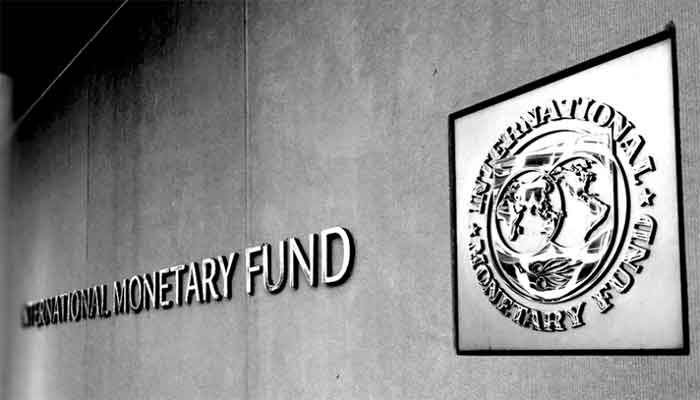
IMF: ‘Less Severe’ but ‘Still Deep’ Recession Predicted
Desk Report
Published: 14 Oct 2020, 08:56 am

The International Monetary Fund ( IMF) has projected in its latest global economic outlook that, in the shadow of the Covid-19 pandemic and its continuing effects, the global economy could see a "somewhat less serious, but still intense" recession by 2020.
The revision is driven by better-than-anticipated gross domestic product ( GDP) for the second quarter in large advanced economies, the IMF announced on Monday, noting that China's growth is also stronger than expected, and signs of a faster recovery in the third quarter.
"Out-turns would have been much weaker if it weren't for sizable, swift, and unprecedented fiscal, monetary, and regulatory responses that maintained disposable income for households, protected cash flow for firms, and supported credit provision", Gita Gopinath, Economic Counsellor and Director of Research at IMF, said in a foreword to the report.
"Collectively these actions have so far prevented a recurrence of the financial catastrophe of 2008-09", she added, reports UN News.
According to the study, several countries have slowed reopenings with the Covid-19 pandemic continuing to spread, and some are reinstating partial lockdowns. Although China's recovery has been faster than expected, the long climb of the global economy back to pre-pandemic levels remains fraught with barriers.
Global growth in 2020 is now expected to be -4.4%, a less extreme contraction than predicted in the June IMF update.
Global growth is expected at 5.2 percent in 2021, marginally lower than in the June update, representing the more modest slowdown predicted for 2020.
The level of global GDP in 2021 is projected to be a "modest" 0.6 percent above that of 2019 following the contraction in 2020 and recovery in 2021, the report said, adding that growth forecasts suggest large negative production gaps and rising job losses in both advanced and developing economies this year and in 2021.
After 2021, global growth is expected to gradually slow to around 3.5 per cent into the medium term, implying only limited progress towards projected growth for 2020-25 projected before the pandemic.
'Unusually large' uncertainty level
The report notes that the uncertainty surrounding the baseline projection is "unusually large".
The forecast is focused on public health and economic factors that are inherently difficult to predict, it adds, noting the pandemic's uncertain course, the public health response required, and how countries are reacting, especially in the economy's contact-intensive sectors.
Sources of uncertainty also include the extent of global spillovers from soft demand, weaker tourism, and lower remittances; and uncertainty surrounding the damage to supply potential - which will depend on the level of pandemic shock, the size and effectiveness of the policy response.
Taking into account the severity of the recession and the potential removal in some countries of emergency support measures and social security, increasing bankruptcies may aggravate job and income losses. Moreover, fears of a financial recovery could cause new lending to fragile economies to suddenly stop.
Meanwhile, the global confirmed Covid-19 cases surpassed 37.7 million as of Tuesday morning, according to the latest tally from John Hopkins University (JHU).
The deaths from the coronavirus have been recorded 1,078, 868, according to the JHU data.
Besides, more than 26 million patients recovered from coronavirus.
A new Australian study suggested SARS-CoV-2, the virus responsible for Covid-19, can remain infectious for 28 days in a lab, a significantly longer time than previously thought.
The chief of the World Health Organization (WHO) has termed herd immunity against Covid-19 "scientifically and ethically problematic."
The virus, which causes respiratory infection Covid-19, was first detected in the city of Wuhan, China, in late 2019. The outbreak spread quickly across the globe in the first months of 2020 and declared a global pandemic by the WHO on March 11.